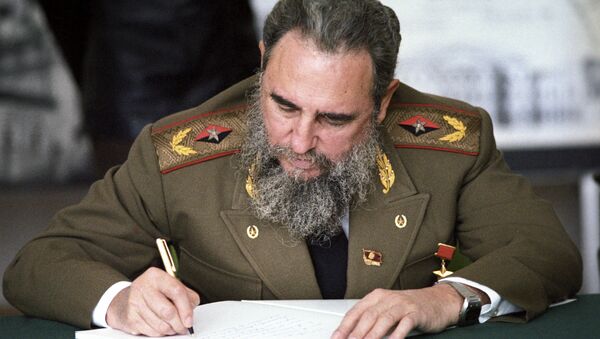MOSCOW (Sputnik) — Fidel Castro, one of the world’s longest-serving leaders, died late Friday at the age of 90. His death was announced by his brother and the incumbent Cuban president, Raul Castro.
"Cuba [under Castro's leadership] made a contribution to the development of human rights in its attempt to provide its people with decent life… [Castro] is a symbol of resistance to the empire, which always sought to destroy Cuba with blockade. The resistance of the Cuban people and Fidel Castro himself, as its undisputed leader, is incredible. It is an example of a perfect balance between the words and actions. I hope it will be recognized by all nations," Esquivel said.
Castro came to power after toppling president-turned-dictator Fulgencio Batista in 1959 and proclaimed a Communist state. He withdrew from political life in the early 2000s, leaving the reigns in the hands of his brother Raul but remained an iconic figure for the nation.



